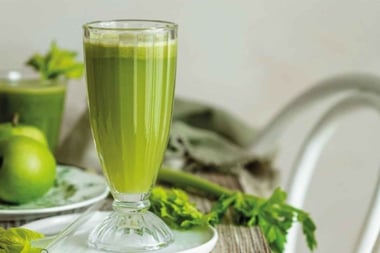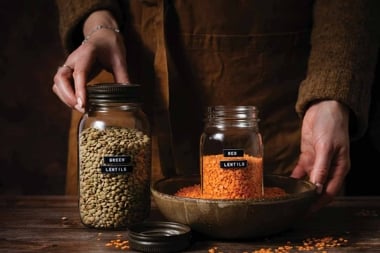Preventing Testicular Cancer Naturally
Conventional medicine claims that, since 90 to 95 percent of testicular cancers are curable if detected early, the best thing for young men to do is to visit the family doctor regularly for an examination or practise testicular self-exam.
Conventional medicine claims that, since 90 to 95 percent of testicular cancers are curable if detected early, the best thing for young men to do is to visit the family doctor regularly for an examination or practise testicular self-exam.
Unfortunately, by the time a so-called painless lump or swelling is discovered, it's too late for prevention. Once the cancer has taken a foothold, it's time for the surgeon and/or oncologist to begin treatments. Conventional treatment usually involves the excision of the diseased testicle and nearby lymph nodes, chemotherapy or radiation therapy, depending on the extent of tumour spread.
What can you do to prevent this cancer from developing? There are no published guidelines on how young men can prevent testicular cancer, the cancer that accounts for about one percent of all cancers in men between the ages of 20 and 40. It can occur any time after age 15 and strikes about 5,000 men each year in North America. The specific cause is unknown, but there are several risk factors that might alert one to becoming more proactive in preventing it in the first place.
Risk factors include:
- uncorrected, undescended testicles in infants and young children
- a family history of testicular cancer
- having an identical twin with testicular cancer
- viral infections of the testicles as occurs with mumps
- injury to the scrotum
If you recognize any of these factors, what steps can you take to protect yourself?
Eat Foods That Are Cancer-Protective
Eat a mostly vegetarian diet with lots of foods that are known to prevent cancer. The following is a list of the most important of these foods, their postulated active ingredients, as well as how they are believed to work in preventing cancer.
- Basil contains monoterpenes, which are antioxidants known for their cancer preventive effects.
- Garlic, onions, and chives contain allylic sulfides, which have antibiotic, antifungal, and antiparasitic properties. Since many scientists now postulate an infectious etiology for cancer, garlic may be exerting its anticancer effects via its antimicrobial properties.
- Berries of all kinds, especially the European blueberry (a.k.a. bilberry) are very high in bioflavonoids called proanthocyanidins and catechins, strong antioxidants known for their anticancer effects. Strawberries contain ellagic acid, a proven cancer-fighter that protects the body's genetic material from damage by carcinogens.
- Green and black tea contain polyphenols, which have potent antioxidant and anticancer effects. Flavonoids are also found in apples and onions, which have similar cancer-inhibiting effects. An adequate daily intake of flavonoids or polyphenols for this purpose would be approximately four cups of tea, an apple, and one-eighth of an onion.
- Tumeric and cumin are two similar spices that are both high in curcumin, a strong anti-inflammatory compound. Curcumin can be effective for both cancer prevention and treatment. It has powerful antioxidant effects and protects the liver from damage by drugs and chemicals.
- Broccoli, cabbage, Brussels sprouts, cauliflower, kale, rutabaga, and mustard greens are vegetables all high in indoles, sulfoxide, and 5-methyl-methionine, all of which have potent anticancer effects. In addition, consumption of these foods helps improve liver detoxification. Broccoli fights cancer through its sulforaphane content, which research indicates blocks the growth of tumours in mice.
- Citrus fruits contain not only vitamin C but also numerous bioflavonoids including quercetin and limonoids. High doses of vitamin C and the bioflavonoids have antiseptic, anti-inflammatory, anti-allergic, and anticancer effects. Ruby red grapefruit is also a source of lycopene, an antioxidant similar to beta-carotene that has potent cancer-fighting properties.
- Flax seeds, hempseed oil, and fatty fish (especially salmon, catfish, mackerel, and trout) have a high content of omega-3, omega-6, and omega-fatty acids as well as lignins (soluble fibres), which have anti-inflammatory effects and can inhibit the cancer-causing effects of high estrogen levels.
- Mustard and watercress contain isothiocyanates. In one study, lung cancer in experimental animals exposed to tobacco smoke was prevented if the animals were fed watercress.
- Tomatoes are high in lycopene. One recent study from Italy found that people who ate seven or more servings a week of raw tomatoes were 60-percent less likely to develop cancer of the stomach, colon, or rectum compared to those who ate two or fewer servings each week.
- Carrots and carrot juice are high in beta-carotene, an antioxidant with powerful anticancer effects.
- Daikon radish is a vegetable that looks like a huge white carrot, which you peel and cut into sticks. Like its broccoli cousin, daikon contains indole-3-carbinol, which prevents excessive estrogen buildup that may promote breast and other cancers.
- Greens, in general, and especially collard greens, green peas, celery, kale, broccoli, and spinach contain lutein and zeaxanthin, which are carotenoid pigments that have cancer-fighting properties as well as the ability to fight macular degeneration, the most common cause of blindness. Greens are also high in folic acid, vitamin C, calcium, magnesium, and potassium.
- Sweet red peppers are cancer fighting due to their high content of lycopene. Hot peppers, on the other hand, contain capsaicin, a phytochemical that is a neutralizer of known carcinogenic chemicals such as nitrosamines.
- Rosemary is a fragrant herb with strong preservative properties. Animal studies indicate that consuming small quantities of rosemary prevents cancer. It can be added to most cooked foods.
Take Daily Supplements
While there may be several dozen nutritional, herbal, or homeopathic remedies that could be recommended for prevention of testicular cancer, here is a list that is both affordable and effective enough to offer maximum protection.
Multivitamin and minerals - take one capsule daily of a multi that contains antioxidants, essential fatty acids, and herbs with cancer preventive effects.
Greens drink - one tablespoon in water or juice daily (or six tablets daily). Choose one that is loaded with antioxidants, immune system boosters, and cancer-fighting herbs.
Colostrum - two capsules, 500 mg twice daily. Cancer is due to an immune system malfunction. Colostrum is the single most effective remedy that optimizes the performance of the immune system.
Vitamin C - 10,000 mg per day in divided doses or to bowel tolerance (the dose at which diarrhea occurs).
Coenzyme Q10 (CoQ10) - 100 mg daily. Cancer patients have been found to have deficiencies of CoQ10, a fact that is important in both prevention and treatment. Studies indicate that high doses of CoQ10 (400 mg or more daily) can prevent the distant spread of breast cancer.
Regardless of your genetic potential for testicular cancer, if you eat more of the right kinds of foods and take these nutritional supplements your chances of getting the disease can be significantly curtailed without drugs, radiation, or surgery.




